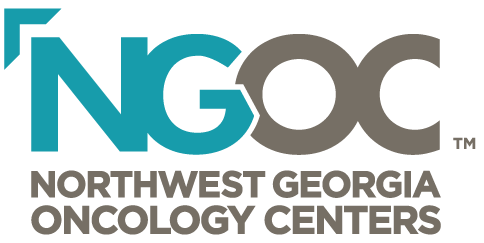Cancer Care Clinical Trials
Our clinical trials are scientific drug studies that involve doctors looking to find new ways to improve cancer treatments and the quality of life of cancer patients. Today, many successful cancer treatments are the results of past clinical trials.
Clinical trials allow doctors to determine whether new treatments are safe and effective and work better than current cancer treatments. They help us improve the quality of life for people during and after treatment and find new ways to prevent and detect cancer. Clinical trials help make progress against cancer and add to our knowledge for improving cancer care for all patients. Learn more about how a cancer trial work and about participating. Trials are available for all stages of cancer.
Should You Participate?
Learn the reasons why you might want to join a cancer clinical trial. By looking closely at all options, you are taking an active role in helping doctors find out if study drugs alone, or in combination with other treatments help fight cancer.
Benefits Include:
- Access to new treatments in development that are only available through clinical trials, and assurance of the highest level of quality care since clinical trials have a high degree of regulatory oversight.
- Access to select clinical trials that have undergone vigorous scientific and ethical reviews, which ensure a high level of patient protection.
Phases of Clinical Trials
Development of new anticancer agents and treatment strategies occurs in four phases. Each phase is designed to determine specific information about the potential of new treatment such as its risks, safety, and effectiveness as compared to standard therapy. The hope is that the new therapy will be an improvement over the previous standard therapy.
This phase is probably the most important step in the development of a new drug or therapy. These trials usually involve a small number of patients for whom other standard therapies have failed or no known alternative therapy is available. Phase I therapy may produce anti-cancer effects and a small number of patients may benefit. However, the primary goals of this phase are to determine anticancer activity in humans, the maximum tolerated dose of the treatment, the manner in which the drug works in the body, the toxic side effects related to different doses and whether toxic side effects are reversible. Upon completion of phase I trials, the information that has been gathered is used to begin Phase II trials.
Phase II Trials:
Once the information is gathered and analyzed from Phase I trials, Phase II trials are designed to determine the effectiveness of the treatment in a specific patient population at the dose and schedules determined in Phase I. These trials usually require a slightly higher number of patients than Phase I trials. This number may increase depending on the number of responses as the Phase II trial progresses. Drugs or therapies that are shown to be active in Phase II trials may become standard treatment or be further evaluated for effectiveness in Phase III trials.
Phase III trials compare a new drug or therapy with a standard therapy in a randomized and controlled manner in order to determine proof of effectiveness. Phase III trials require a large number of patients to measure the statistical validity of the results because patient age, sex, race, and other unknown factors could affect the results. To obtain an adequate number of patients, several physicians (investigators) from different institutions typically participate in Phase III clinical trials.
Once the drug or treatment becomes part of standard therapy, the manufacturer of the drug may elect to initiate Phase IV trials. This phase includes continued evaluation of the treatment effectiveness and monitoring of side effects as well as implementing studies to evaluate usefulness in different types of cancers.
Clinical trials are not available to everyone. Patients must provide informed consent and qualify through a protocol specific screening process. Participation is completely voluntary. If you do not qualify or choose not to participate in a clinical trial offered at NGOC, your cancer doctor will still be able to offer standard treatment alternatives.

